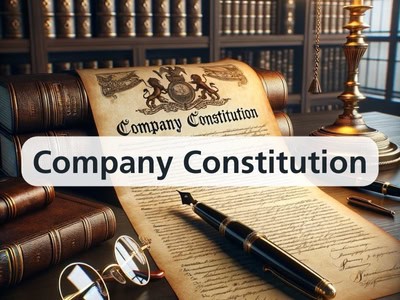Understanding Company Constitution
 A company constitution is a crucial legal document outlining the foundational structure, rules, and regulations governing a company’s operations. Serving as a blueprint, it assigns roles and responsibilities to executives, fostering a clear understanding of governance and operational expectations.
A company constitution is a crucial legal document outlining the foundational structure, rules, and regulations governing a company’s operations. Serving as a blueprint, it assigns roles and responsibilities to executives, fostering a clear understanding of governance and operational expectations.
Differentiating from the Memorandum of Association, the latter defines company structure and objectives, while the Articles of Association lay down internal rules and relationships. Traditionally distinct, modern practices often combine these into a unified document known as the Company Constitution.
Which One Is Mandatory?
While previously both the Memorandum and Articles were mandatory, contemporary requirements stipulate only the need for the Articles of Association, now synonymous with the Company Constitution. Collaborating with Hong Kong incorporation experts ensures the inclusion of essential information in the constitution.
Drafting involves detailing the company’s name, liability clauses, subscriber details, business objectives, regulatory adherence, company type, share intricacies, directorial information, and conflict resolution mechanisms. This comprehensive approach ensures that beyond registration, the constitution serves as a guiding reference, preventing conflicts and contributing to a well-structured business plan.


